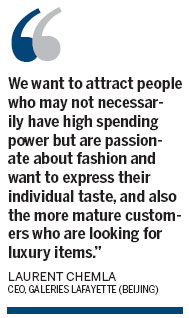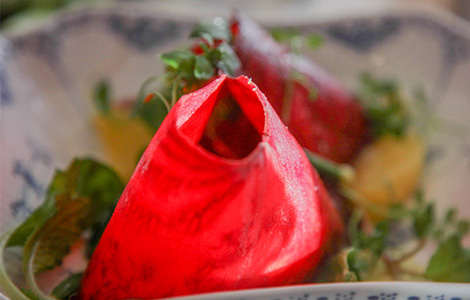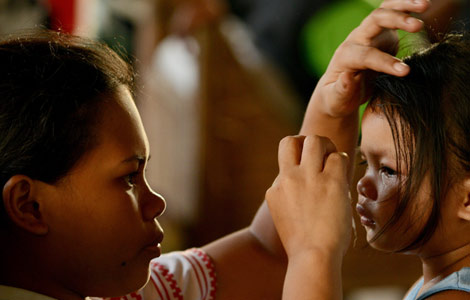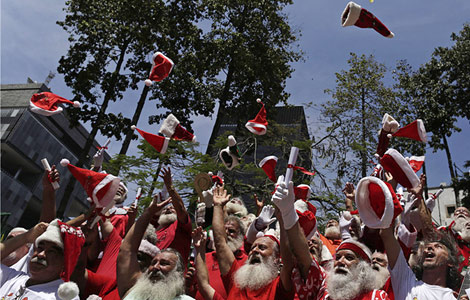Luxury giants tap into mainland market
Updated: 2013-11-11 07:24
By Zhao Xin (China Daily)
|
||||||||
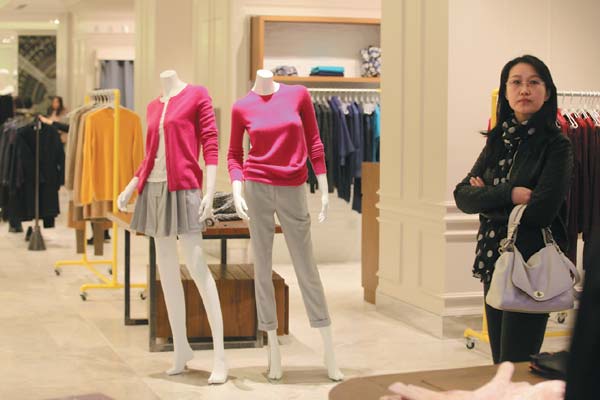 |
|
Wang Jing / China Daily |
| They don't make things like they used to |
| J. Galliano makes fashion return in British Vogue |
Yu welcomed Lafayette's embrace of streetwise fashion. "Dressing up or dressing down? For me, the latter choice is for fashion insiders who are uninterested in displays of wealth, and are not new to the concept of studied casualness, or understated luxury."
But Yu's approval was not shared by all observers. In fact, Lafayette's friendly pricing and its choice of the Xidan area - arguably Beijing's busiest, and probably most crowded, place for youth shopping - has caused some to question the wisdom of this decision.
"Xidan is not particularly known for being an incubator of style, and it also has very little to do with high fashion in people's common perception," said Jiang Yi, a Beijing-based independent designer who has long operated his own boutique in Beijing's trendy Sanlitun area, an expat haunt in the northeast of the city. "There's an identity problem for Lafayette in choosing Xidan as its landing locale and physically juxtaposing itself with many local department stores that sell, in my view, clothes but not fashion, let alone style."
Jiang's other concern is that, by opening its arms to the middle classes, Lafayette may risk alienating its more privileged customers in a society where the wealthy insist on being treated accordingly.
It's not that Lafayette isn't taking note, according to Chemla. In fact, he's aiming for exclusivity, as evidenced more by the products than the price tags.
"Our Beijing store is focused on new and exclusive fashion brands," he said. "It carries around 500 brands. Of these, roughly 300 are directly imported and operated by the brand's own staff. The main reason for that is that the majority of them - around 200 - did not have any prior presence in China ... this goes hand-in-hand with our strategy to be the place where new brands and trends are launched in Beijing."
Chemla's determination to end the seemingly endless repetition of brands in many Chinese stores is shared by Andrew Keith, president of Lane Crawford, who has made the showcasing of emerging industry talents an anchoring point for his new store, which covers 14,000 square meters on Shanghai's high-tone Huai Hai Zhong Road.
"In China we see an increasing awareness of brand and product exclusivity," he said. "The Chinese are looking for brands that are relatively rare in the market."
"Rarity with renown" seems to be Lane Crawford's selection criteria when it comes to niche international designer labels. Chosen designers include Proenza Schouler, Jason Wu and Alexander Wang. Their popularity, Wu and Wang especially, among the Chinese fashion pack, is ably testified - probably to their delight and dismay - by the number of fake items being sold under their brand names on China's major online shopping portals.
Related:
David Bowie is the new face of Louis Vuitton
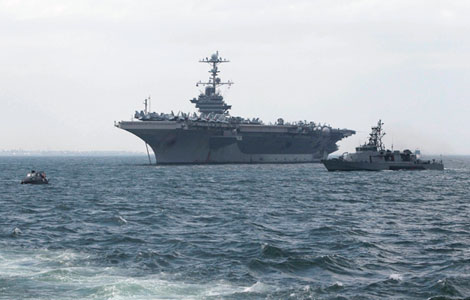
 US carrier starts Philippine storm relief
US carrier starts Philippine storm relief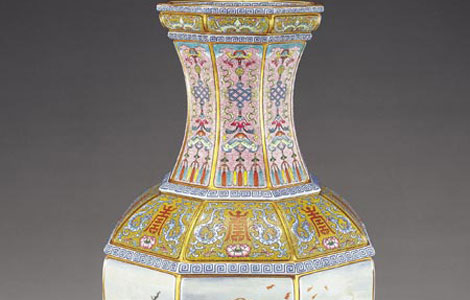
 Treasures under the hammer
Treasures under the hammer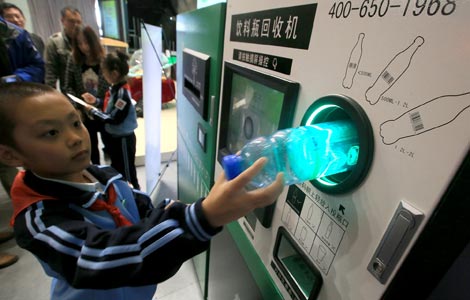
 'Reverse' vending machine sells idea of recycling
'Reverse' vending machine sells idea of recycling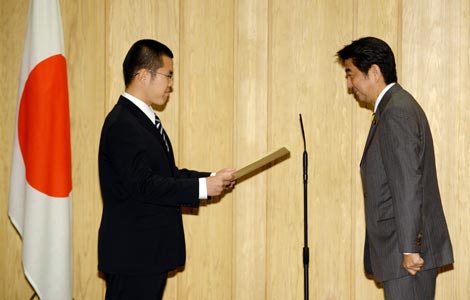
 Heroic act helps thaw icy ties
Heroic act helps thaw icy ties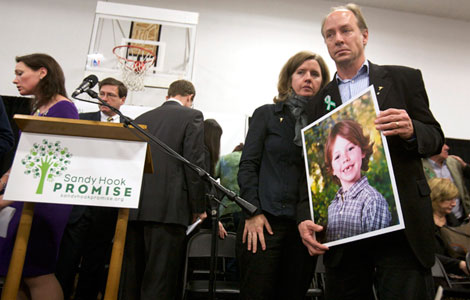
 Newtown families mark anniversary with a plea for parents to unite
Newtown families mark anniversary with a plea for parents to unite
 China's changing fashion since 1978
China's changing fashion since 1978
 Healthy baby born to brain-dead mom in Hungary
Healthy baby born to brain-dead mom in Hungary
 Top 10 romantic places to meet your Miss Right
Top 10 romantic places to meet your Miss Right
Most Viewed
Editor's Picks

|

|

|

|

|

|
Today's Top News
China issues detailed reform roadmap
CCNY to occupy US's tallest building
Nobel prize winner's connections with China
US to seek commitment on market
 CCA buys on Hudson riverfront
CCA buys on Hudson riverfront
US treasury chief visits China
US spying agencies out of control
Yancoal strides into the potash game
US Weekly

|

|


